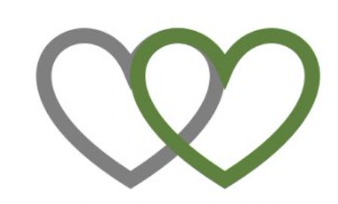iCHOOSE
Development of a core outcome set and identification of outcome measurement tools to improve care and research for care after stillbirth
Background
Interventions or care offered to parents following the diagnosis of stillbirth include birthing options, counselling and care in subsequent pregnancies. The evidence for many of these interventions is limited. A scoping review investigating the outcomes reported in studies evaluating interventions after stillbirth, highlighted the wide variation in outcome reporting, with almost all researchers neglecting to involve parents in their decision making when considering what outcomes to measure.
There is a need to develop and evaluate evidence-based care for parents experiencing stillbirth. In order to ensure research focuses on outcomes that matter to parents and avoid research wastage, it is vital to establish a core set of outcomes which could be measured whenever a new or existing intervention or care is implemented. These outcomes would need to be feasible, acceptable and reliable to key stakeholders including parents, healthcare professionals and researchers. A core outcome set for care after stillbirth will ultimately lead to more efficient research and better care, faster, for parents.
Methods
Stage 1: Identifying previously reported outcomes
A systematic review of the quantitative and qualitative literature is being undertaken to investigate what outcomes have been reported in existing studies and what measurement tools have been used to measure those outcomes.
Stage 2: Identifying outcomes that are important to parents and healthcare professionals
We are currently recruiting 30 parents who have experienced a stillbirth to take part in a face-to-face interview to find out what their experiences have been and what impact it has had on their health. Outcomes will be identified by thematic analysis.
As well as informing the next stage of our study to develop a core set of outcomes to improve care after stillbirth, these interviews will also form the basis of a new module on Healthtalk.org. This is a unique website that features video and audio clips from carefully conducted interview studies with patients about experiences of health and illness. There are over 110 conditions already covered and this project will provide an invaluable new information and support resource for bereaved parents, their families and friends about what it is like to experience a stillbirth. Findings will be triangulated with a healthcare professional focus group.
Stage 3: Determining the Core Outcome Set
Parents, doctors, midwives and researchers will participate in a three-round online Delphi study to prioritise outcomes identified in stages 1 & 2. A consensus meeting with stakeholders will be held to determine the COS.
Stage 4: Determining how core outcomes should be measured
An in-depth quality assessment of outcome measurement instruments using consensus based methodology will be take place on short-listed outcomes derived from the Delphi Study.
Patient and public involvement
Patient involvement will be sought throughout the development of the COS. A parent involvement group has been created with 13 parents who have experienced the loss of a baby. Two meetings have so far taken place to inform the research.
Who can participate?
Parents (mothers and/or fathers) who have experienced the loss of a baby in pregnancy after 24 weeks.
What does the study involve?
The time it takes for an interview varies, depending on how much you have to say, but most interviews last at least an hour. The interview will be audio and/or video recorded.
What are the possible benefits and risks of participating?
Developing a core outcome set for care after stillbirth will enable researchers to focus research and clinical care on important outcomes, to make better use of evidence and develop effective interventions for parents experiencing stillbirth.
Given the nature of this study, it is highly unlikely that you will suffer harm by taking part. However, parents find talking about your baby and your experience distressing and upsetting. If this happens you are free to withdraw from the study at any time and we will provide you with contact details for help and support if you wish.
Study Timeline
The study started on 2018 and will end 2020
Study Contact
Dr Danya Bakhbakhi
Ichoose-research@bristol.ac.uk
Further details
This is funded by an NIHR Doctoral Research Fellowship awarded to Dr Danya Bakhbakhi.
Collaborators include:
Health Experiences Research Group – University of Oxford
Sands – Stillbirth and Neonatal Death Charity
COMET and CROWN initiatives
National Stillbirth Centre for Research Excellence, Australia
